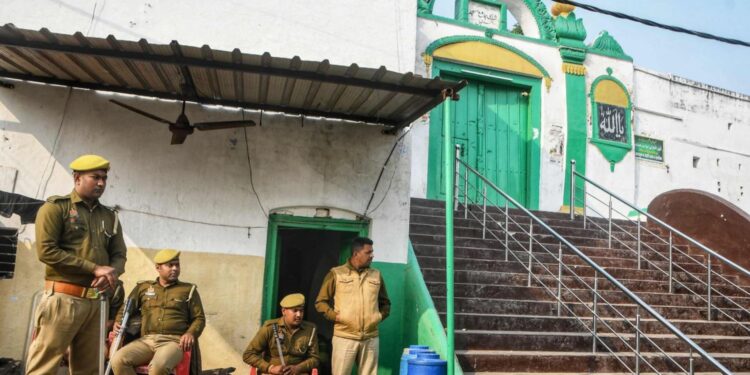The Supreme Court on Friday took significant steps to address the ongoing legal and social tension surrounding the Shahi Jama Masjid survey case in Sambhal, Uttar Pradesh. The Court directed the trial court to halt any further proceedings based on its earlier order directing a survey of the mosque, citing concerns over potential public unrest and the need for judicial caution.
A Bench consisting of Chief Justice Sanjiv Khanna and Justice PV Sanjay Kumar emphasized the importance of maintaining peace and harmony, especially in light of the violence that had erupted after the survey order. The Court noted that the petitioner should challenge the November 19 order in an appropriate forum under the Code of Civil Procedure. It further urged the authorities to ensure peace, with ASG KM Nataraj assuring the Court of such efforts. The Bench clarified that the matter would be heard again in January 2025 while instructing that no action should be taken until the High Court hears the matter.
The case at hand involves a plea filed by Advocate Hari Shankar Jain and seven others, alleging that the Shahi Jama Masjid was constructed on the site of a demolished temple during the Mughal period. Civil Judge Aditya Singh issued an order on November 19, directing the appointment of an advocate commissioner to conduct a survey of the mosque and submit a report by November 29. This survey order was challenged before the Supreme Court by the Shahi Jama Masjid Committee, arguing that such surveys, particularly concerning religious sites, should not be ordered hastily and without the opportunity for the defendants to be heard.
During the proceedings, Chief Justice Khanna raised concerns about the potential for public mischief resulting from such orders and questioned whether the issue could be reviewed under Article 227 by the High Court. Senior Advocate Huzefa Ahmadi, representing the Shahi Jama Masjid Committee, argued that the survey could lead to greater communal tensions and unrest. Ahmadi pointed out that similar cases where surveys were ordered in contentious religious matters had led to violence and political manipulation and that this case could set a dangerous precedent.
The Court responded by stressing the need for “peace and harmony” and called for the formation of mediation committees at the district level, as suggested in the Mediation Act, to avoid any further escalation. The Bench also noted the importance of not acting in haste, particularly in cases that involve places of worship. The Court also clarified that it had not yet expressed an opinion on the merits of the case and had not disposed of the special leave petition (SLP), keeping the issue open for further consideration.
The situation surrounding the Shahi Jama Masjid survey had already sparked significant violence. On November 24, clashes broke out between police and protesters, resulting in at least four deaths due to stone-pelting and vehicle burnings. The violence erupted after the survey team arrived in Chandausi for a second round of survey work following the initial survey on November 19. The autopsy confirmed that the deaths were not caused by police firing, but the incident fueled further communal unrest in the region.
In light of the violence, a petition has been filed in the Allahabad High Court seeking the formation of a Special Investigation Team (SIT) to probe the communal violence that ensued in Sambhal district following the court-ordered survey. The Court’s intervention, including its direction to delay the trial court’s proceedings, highlights the judicial system’s concern over the potential for sensitive issues involving religious places to trigger widespread social unrest and the importance of ensuring that such matters are handled with care and due legal process.
The Supreme Court’s actions reflect a broader concern about the role of courts in managing religious disputes and surveys involving religious sites, particularly given the potential for such actions to fuel political and communal divisions. By deferring the proceedings and urging the High Court to review the matter, the Court has placed a pause on what could have been an escalating situation, encouraging a more measured approach to resolving the dispute while ensuring that peace is maintained in the affected communities.
The Supreme Court has asked the Sambhal court to delay the hearing in the Shahi Jama Masjid survey case.
Previous Post

















